| Listing 1 - 10 of 36 | << page >> |
Sort by
|
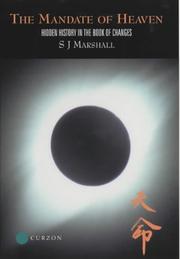
ISBN: 0700712992 Year: 2001 Publisher: London Curzon
Abstract | Keywords | Export | Availability | Bookmark
 Loading...
Loading...Choose an application
- Reference Manager
- EndNote
- RefWorks (Direct export to RefWorks)
Book
ISBN: 0041810015 Year: 1970 Publisher: London Allen and Unwin
Abstract | Keywords | Export | Availability | Bookmark
 Loading...
Loading...Choose an application
- Reference Manager
- EndNote
- RefWorks (Direct export to RefWorks)
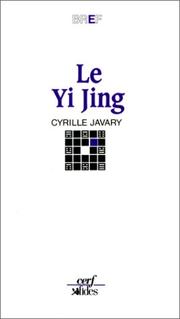
ISBN: 2204040320 9782204040327 Year: 1989 Volume: 20 Publisher: Paris Cerf
Abstract | Keywords | Export | Availability | Bookmark
 Loading...
Loading...Choose an application
- Reference Manager
- EndNote
- RefWorks (Direct export to RefWorks)
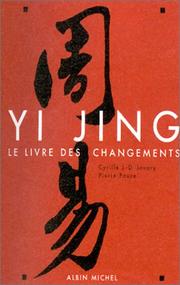
ISBN: 222611713X 9782226117137 Year: 2002 Publisher: Paris Albin Michel
Abstract | Keywords | Export | Availability | Bookmark
 Loading...
Loading...Choose an application
- Reference Manager
- EndNote
- RefWorks (Direct export to RefWorks)
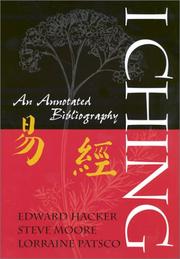
ISBN: 0415939690 Year: 2002 Publisher: London Routledge
Abstract | Keywords | Export | Availability | Bookmark
 Loading...
Loading...Choose an application
- Reference Manager
- EndNote
- RefWorks (Direct export to RefWorks)
Book
ISSN: 05674980 ISBN: 9783447104067 3447104066 Year: 2015 Volume: 97 Publisher: Wiesbaden Harrassowitz
Abstract | Keywords | Export | Availability | Bookmark
 Loading...
Loading...Choose an application
- Reference Manager
- EndNote
- RefWorks (Direct export to RefWorks)
The Zhouyi, Bronze Age progenitor to the Yijing (I Ching), or Book of Changes, was a divination manual created and utilized by the early rulers of the Zhou dynasty (founded 1046 BCE). This new translation dispenses with 20th century attempts to discredit tradition and endeavors to recover the context of its early Zhou dynasty origins. As such, interpretation of its language is based strictly upon pre-Confucian sources to avoid the anachronistic readings that accrued to the text in its evolution from a book of divination to a book of philosophy. For the first time in the book’s translation history, its judgment and line texts have been clearly labeled according to their content - either omen, counsel, or prognostication - in order to clarify their divinatory function. Furthermore, each hexagram is accompanied by a line-by-line commentary providing detailed background for the situations presented in the texts and explicating metaphorical language and technical syntax. The general public will appreciate the narrative cohesion of the commentaries, while the specialist will welcome the appended Chinese text. Finally, the book also provides the reader with explanations of the myth, legend, and history in the formative stages of the Zhouyi’s creation and gives comprehensive information on how to cast the oracle and interpret the resulting reading.
S12/0310 --- China: Philosophy and Classics--Yijing 易經 Book of Changes (also Zhouyi 週易) --- Chinese literature --- History and criticism. --- Yi jing. --- China --- History.
Book
ISBN: 0710004079 Year: 1980 Publisher: London Routledge and Kegan Paul
Abstract | Keywords | Export | Availability | Bookmark
 Loading...
Loading...Choose an application
- Reference Manager
- EndNote
- RefWorks (Direct export to RefWorks)
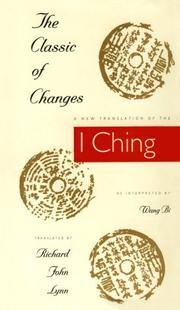
ISBN: 0231082940 0231082959 Year: 1994 Publisher: New York (N.Y.): Columbia university press
Abstract | Keywords | Export | Availability | Bookmark
 Loading...
Loading...Choose an application
- Reference Manager
- EndNote
- RefWorks (Direct export to RefWorks)
The first new translation of this work to appear in more than twenty-five years, the Columbia I Ching presents the classic book of changes for the world of today. Used in China as a book of divination and source of wisdom for more than three thousand years by scholars and general readers alike, it has influenced Western intellectuals and artists from Carl Jung to John Cage, bringing this most important work of the Confucian canon immense popular appeal. Finally, after decades of inaccurate translations and outdated, expurgated pocket editions, here is an I Ching that catches up with its readers. Richard Lynn's introduction explains the organization of The Classic of Changes through the history of its various parts, and describes how the text was and is still used as a manual of divination with both the stalk and coin methods. For the fortune-telling initiate, he provides a chart of trigrams and hexagrams; an index of terms, names, and concepts; a glossary and bibliography; and thoughts on his method of translation. Lynn presents for the first time in English the fascinating commentary of Wang Bi (226-249), who was the principal definer of the work for some seven hundred years. Wang Bi interpreted the I Ching as a book of moral and political wisdom, arguing that the text should not be read literally, but rather as an expression of abstract ideas. Lynn places Wang Bi's commentary in historical context and examines the interpretation of this common source for both Confucian and Taoist philosophy before and after Wang Bi's time. Columbia's I Ching offers devotees the most authoritative and lucid translation they have yet to encounter, while giving first-time readers the chance to consult a fascinating and important Chinese work. The Classic of Changes will be the new standard for years to come.
S12/0310 --- China: Philosophy and Classics--Yijing 易經 Book of Changes (also Zhouyi 週易) --- Philosophy, Chinese --- Chinese literature --- Wang, Bi, --- Yi jing.
Book
ISBN: 9577392555 Year: 2000 Publisher: 臺北 萬卷樓圖書有限公司
Abstract | Keywords | Export | Availability | Bookmark
 Loading...
Loading...Choose an application
- Reference Manager
- EndNote
- RefWorks (Direct export to RefWorks)
Book
ISBN: 9020247859 Year: 1991 Publisher: Deventer Ankh-Hermes
Abstract | Keywords | Export | Availability | Bookmark
 Loading...
Loading...Choose an application
- Reference Manager
- EndNote
- RefWorks (Direct export to RefWorks)
#gsdb3 --- filosofie --- History of philosophy --- rituelen --- China --- Indian religions --- S12/0310 --- #SML: Joseph Spae --- China: Philosophy and Classics--Yijing 易經 Book of Changes (also Zhouyi 週易)
| Listing 1 - 10 of 36 | << page >> |
Sort by
|

 Search
Search Feedback
Feedback About UniCat
About UniCat  Help
Help News
News